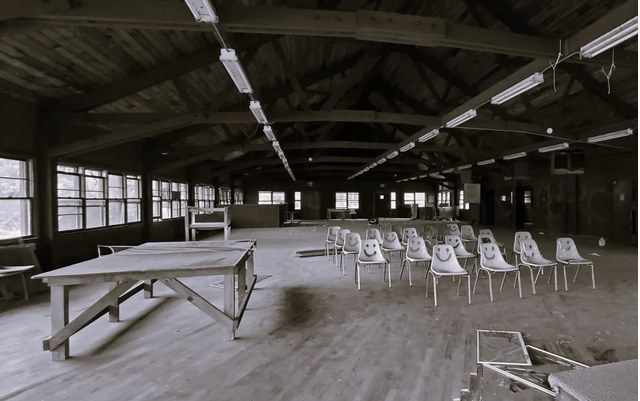By
“The opposite of addiction is connection” – Johann Hari
“Every addiction starts with pain and ends with pain” – Eckhart Tolle
“Not why the addiction but why the pain.” – Gabor Maté
One more simple concept introduced on September 14, 1986, that oriented the thinking and framework of addiction policy in a different era:
“Say yes to your life. And when it comes to drugs and alcohol just say no.” – Nancy Reagan
Easily recognizable and often referenced quotes that illuminate important facets of addiction in a simple way. Pain is a huge driver of addiction. Not using drugs prevents addiction. Here is one more quote, this one about simple solutions:
“For every complex problem, there’s a solution that is simple, neat, and wrong.” – H.L. Mencken
Of course, that fourth one by First Lady Nancy Reagan escalated the war on drugs in America to new heights (or lows) and in hindsight did a lot of damage. A war on drugs ends up being a war on families, mostly black and brown ones.
In respect to the quotes by Tolle, Hari and Maté, their work has greatly influenced our thinking. They illuminated important truths about addiction and pain. They helped us understand the relationship between trauma, pain and addiction in invaluable ways. Trauma and emotional pain are huge facets that influence substance use that for many people can lead to addiction. These things are true, but not the full truth.
But do we really think that trauma and pain underpin 100% of all substance misuse and addiction? I don’t. If you read their work, they do not see things in such simplistic term either. But generally, society does not like to consider multifaceted issues, preferring soundbite solutions. Hence, the quotes resonate with people who then act as if addressing the issues from this one perspective will solve everything.
In our current era, there is a great emphasis on trauma as that thing that people can focus on addressing as a panacea. Trauma is everywhere, nearly everything in the healing narrative is being relabeled or reconceptualized as trauma or trauma informed.
Some Broad Questions I will not even attempt to answer:
- Do humans only thrive only in the absence of trauma and pain?
- Do we really think that if we could eliminate all trauma and pain that we would no longer have anyone who became addicted to drugs?
- Is it humanly possible to create a world in which every person has all their needs met and does not experience any trauma or pain?
- If it is possible, why has it never been done before in human history?
- If it is possible, do we have the components in place to do so in our current era?
- If we lived in a world without pain and trauma, would there be any potential unintended consequences?
If we could eliminate all suffering, we may well also eliminate all the growth that comes from experiencing hardships. Humans are wired to overcome challenge. We evolved to do so. Accomplishing hard things is deeply satisfying. We are built to be resilient. I am not suggesting ignoring trauma and pain. Efforts to improve the way we understand and address trauma are vital. There are social determinants of health we must focus on to improve the lives of all of our citizens, particularly members of our society who are exposed to corrosive levels of trauma that sap their wellbeing and vitality. But we are not going to end trauma and addiction anytime soon.
Seeing everything related to addiction as related to trauma is risky. A parallel I am thinking about is the pursuit of pleasure. The American dream, focusing on the good life. Materialism and maximizing experiences that make us feel happy. The best vacation, the nicest clothes, a cool car and an ideal home in the best community. The data shows there is a paradox in the pursuit of pleasure known as the Hedonic Paradox. Some evidence suggests that the more people value happiness, the less happy they are. Long term happiness is actually more strongly associated with pursuing things which are purposeful, which are often hard and may even include experiencing trauma and pain along the way. That is what makes this a paradox!
Ironically, we live in an era in which people feel like they have less purpose than ever. Bored people use drugs too. They also gamble more, use social media more and engage in buying more things. Stuff that gives us a burst of feel-good chemicals in ways that were not as available in any other age. Would it make more sense to focus on connecting people to things that they find meaning and purpose in their lives than it would be to attempt to eliminate all trauma? It may be a worth focus. It is important to note that purposeful people also experience addiction. I offer no simple solutions here, that is my point.
What do we lose when we frame complex conditions as being associated with one factor? That is probably the thing that the Nancy Reagan quote above can reveal to us most effectively and also why it is important to understand addiction and recovery history when considering how we improve things moving forward. We can look back at the war on drugs and wonder what these people were thinking. They thought they could punish people to the point people would just say no to drugs. By the way, they really did think so, in part because they did not factor in what addiction does to executive function. But the concept of a war was one people understood, so a war we had!
One more quote, “If the only tool you have is a hammer, you tend to see every problem as a nail.” This is a famous quote by Abraham Maslow which refers to a concept commonly known as the “law of instrument” or Maslow’s Hammer. We see what we see because we know what we know. If one comes from the school that sees trauma as the central causative factor in addiction, you will invariably experience confirmation bias, just as other schools do.
While I am not suggesting that the current focus on trauma is equivalent to the war on drugs in potential harms, I do think that conceptualizing the complexities of drug use and addiction as only related to trauma and pain will miss the boat. Drug misuse and addiction also include genetic risk factors and probably also relate to societal trends.
We increasingly lack hope, purpose, and connection due to rapid changes that in our society that started with the age of industrialization, picked up in pace through the information age and may well get worse in a world driven by artificial intelligence. A world with less creativity and effort. A world in which we are redundant. One is which selling addictive substances to sooth pain and boredom is highly lucrative. One in which we may find ourselves in a petri dish primed for suffering and drug addiction.
If we want to latch on to a quote about substance misuse and addiction that would be more helpful, perhaps it is this one:
“If stopping substance misuse and addiction was easy, we would have done it already” – Author Unknown.
Source: https://recoveryreview.blog/2023/05/13/simple-answers-to-complex-problems/


